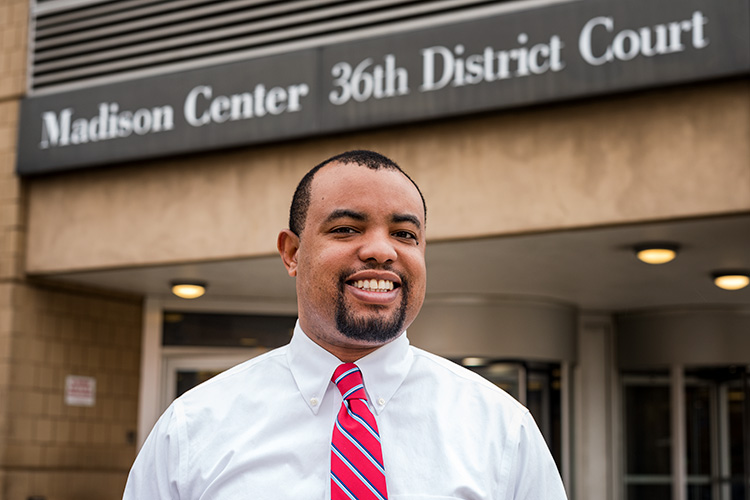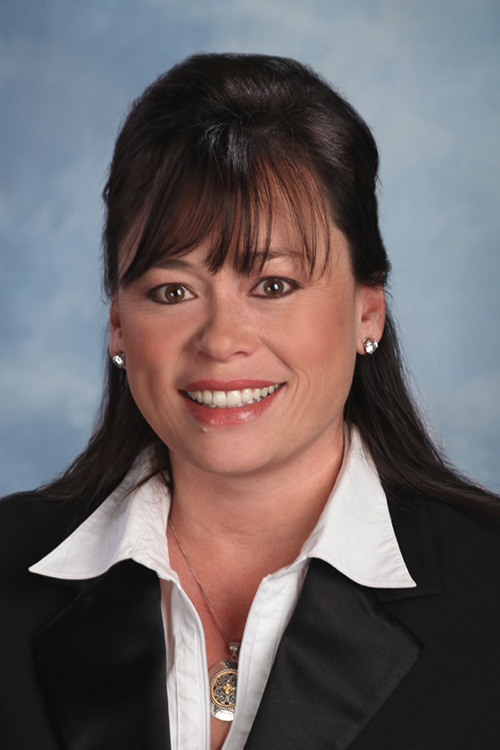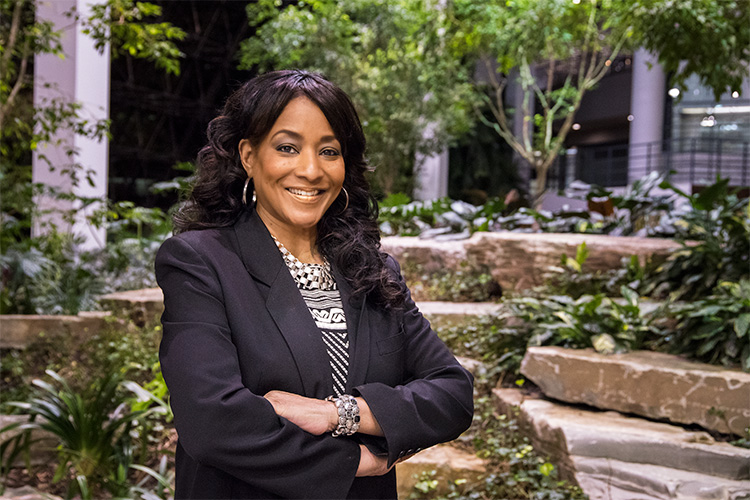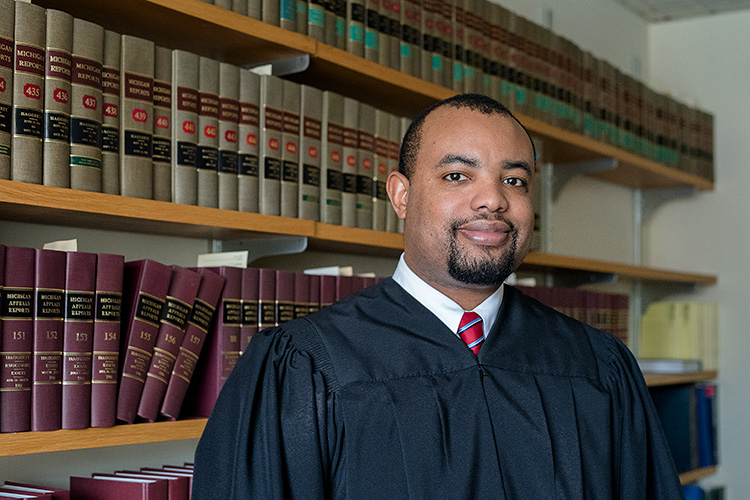Local elected officials of color on race and politics in the age of Trump, part 3
The concluding installment of our Politicians of Color series features a variety of local elected officials, ranging from Washtenaw County commissioner Alicia Ping to Detroit district court judge Larry Williams.

Although it’s hardly unique among the states, Michigan’s government has a representation problem. According to the Reflective Democracy Campaign’s 2015 “Who Leads Us?” survey, 64 percent of the state’s elected officials were white men – despite the fact that white men make up only 38 percent of Michigan’s population.
In light of that issue, and the greater national discussions of racism that have arisen around Donald Trump’s candidacy and presidency, Model D presents the third in a three-part series on our region’s elected officials of color. This series is presented in conjunction with Concentrate and Metromode, our sister publications in Ann Arbor and the metro Detroit area.
Our previous two installments focused on state representatives of color and city council members of color. This concluding installment features a variety of local elected officials of color, ranging from county commissioners to a district court judge.
Alicia Ping: Rejecting “model minority” limitations

Alicia Ping says Asian-Americans in government usually face fewer negative stereotypes than other people of color. But even seemingly non-derogatory stereotypes can still prove limiting.
Ping, who was born to a Chinese father and an Irish-American mother, represents District 3 on the Washtenaw County Board of Commissioners. She criticizes the “model minority” stereotype that expects Asian-Americans to “be good at music and math and not cause a ruckus.”
“I think that makes it a little more difficult for Asian-Americans who have strong Asian culture to get involved and bring a spotlight to them or their family,” she says. “If you’re standing for something or in opposition to something or you’re running for a cause, you’re not going with the crowd. And that’s prohibitive in the culture for getting people to actually get out and be active.”
Ping has certainly been active in politics for some time. She served six terms on Saline’s city council before being elected in 2010 to represent Saline, Manchester, and the townships of Lodi, Bridgewater, Saline, Freedom, Manchester, York, and Sharon on the county commission. The accomplishment she’s proudest of so far has been spearheading the effort to establish Saline’s Youth Council, a city commission of 13 high schoolers that functions as a liaison between city youth and their government. Ping says it’s vital to encourage young people of all racial backgrounds to get involved in civic affairs.
“It doesn’t really matter what party you affiliate with,” she says. “If you find a candidate that you like, go out and work for them. Go out and make a difference. Go knock doors. Go talk to people. Really get involved and stand for something.”
As a Republican, Ping has recently felt particularly motivated to take a stand against the most visible public figurehead for her own party. She describes President Trump’s racially charged rhetoric and his travel ban against predominantly Muslim nations as “really sad.”
“For the people of a race or religion that hasn’t been specifically called out [by Trump], I think it’s even more important … to stand up and say, ‘Hey, what you’re doing isn’t right,'” she says. “Clearly the people who have been identified and called out can have opposition to what he’s saying, but I think it’s just as important for other people of color to stand united with that group and say, ‘Hey, these broad, sweeping accusations are not good for anybody.'”
Janet Jackson: “I feel more emboldened to be who I am”

Growing up with a father who worked in then-Detroit mayor Coleman Young’s administration and a mother who worked for the Army, pursuing a career in public service was a natural choice for Oakland County commissioner Janet Jackson.
“I heard politics and civil service around the dinner table,” says Jackson, who represents the cities of Southfield and Farmington Hills on the county commission. Her father was a supervisor in Young’s housing department, while her mother worked in logistics at the Detroit Arsenal.
Jackson shaped her political priorities early, too. Growing up in Detroit near what she describes as “the red light district” near the intersection of Eight Mile and Greenfield roads, she developed an early passion for fighting human trafficking.
“It was one of the first things I saw as far as a community action item,” she says.
Jackson has doggedly pursued that issue in her political career since being elected to the board of commissioners in 2008, working with a variety of local and national organizations to prevent trafficking.
Despite working in a more progressive era, Jackson thinks she’s faced more political challenges than her parents did. While her father was an African-American working for a majority African-American mayoral administration, Jackson serves on a board of commissioners that is predominantly white and male.
“There is a challenge because I believe that we’re still in the trailblazing mode,” she says. “Even though my area is very diverse, I have to just remind my fellow leaders that I was a product of a certain type of experience that I need to bring to the table and share.”
Jackson says she was raised to put her best foot forward and “try to do twice as good” as anyone else in order to best represent her family and her community. As a result, she’s been angered by the way President Trump has reset the standards of conduct for public officials. She describes that shift as a very personal issue for her, but its overall effect on her is positive.
“I almost feel more emboldened to be who I am because [Trump] feels like he can come and change the game whichever way he pleases,” she says. “If folks are out here and they want to embrace all of that, then they should embrace me for who I am. Maybe things that didn’t need to be talked about as much before really need to be brought to the forefront.”
Larry Williams: New perspective in a powerful position

When Larry Williams started law school at Wayne State University, he knew he wanted to go into public service, but didn’t have a specific position in mind. That changed when a couple of Wayne County assistant prosecutors spoke to one of his classes.
“They put it bluntly: There weren’t a lot of African-Americans in these roles,” he says. “At the end of the day, these are the people who have a great influence, but it’s a job that not a lot of people of color were in.”
Williams interned for the prosecutor’s office while still in school and became an assistant prosecutor for the county in 2004. As an African-American in that position, he says he sometimes found himself “being one of the voices in the room that are speaking for the community as opposed to the office.” Last year Michigan governor Rick Snyder appointed Williams to the 36th District Court in Detroit, replacing judge Miriam B. Clark, and voters elected Williams to a full term on the court in November. Williams says his race has, if anything, been “a source of pride” to the community he serves in his career thus far.
“Just coming into a courtroom when you have public officials of color, whether they be prosecutors or police or the judges in that situation, I think at least optics-wise it looks like you have somebody that’s … at least understanding what you’re dealing with as an African-American,” he says. “I’m lucky as far as serving in Detroit. There’s not many people I encounter who are looking down on my race.”
Williams stresses the fact that his job is to interpret the law, not make it. His job remains the same regardless of broader political issues, including who’s in the White House. But he echoes many local elected officials’ sentiments regarding the Trump administration, describing a mentality shift as an African-American professional and as “somebody that loves and cares for everybody in this town.”
“I think that people are scared and people want to know what’s going on and they want to make sure that the courts will protect them,” he says. “I feel that the courts will do what the courts are supposed to do. And that’s the best protection for everybody.”




